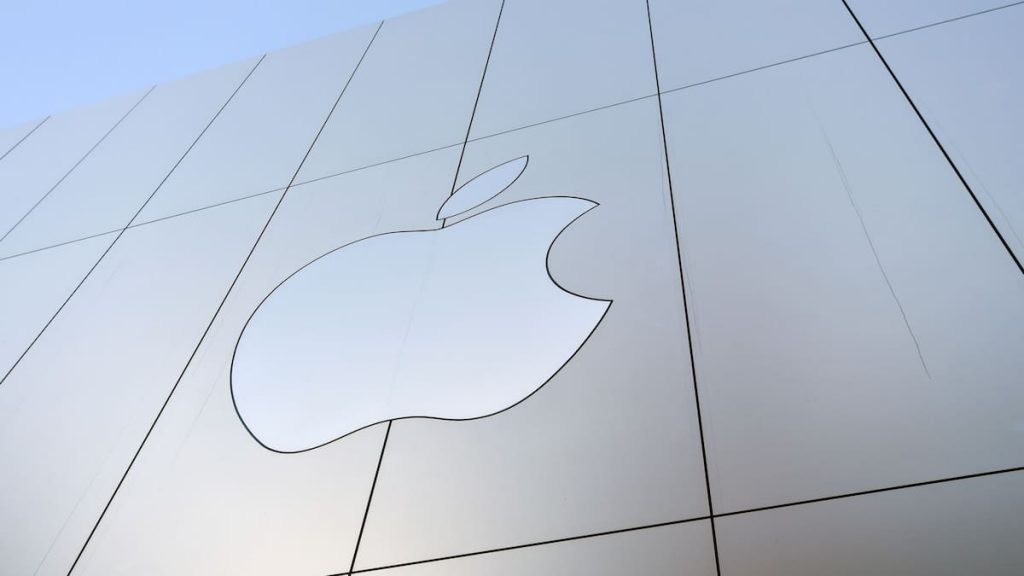Starting Monday, iPhone users will have the option, for every mobile app, to accept or refuse to be tracked, thanks to an update from Apple that is likely to be fraught with consequences for the ads of the ecosystem dominated by Facebook and Google.
Two models collide in Silicon Valley: The electronics giant sells its smartphones, tablets and computers at high prices, while its neighbors provide free services in return (implicitly) to internet users’ data, which is used to send them highly-targeted ads. On a very large scale.
Civil society (associations, academics, etc.) has long criticized this dominant economic model, and is periodically challenged by laws (in Europe and California) or less well-known companies.
But the Apple brand, with one billion active iPhones in the world, has the potential to change habits.
Since September, publishers of apps running iOS, Apple’s mobile operating system, can ask their users for permission to follow them as they move between different websites and apps to collect and use their data.
With the release of iOS 14.5 this week, this feature is known as ATT (Application tracking transparency), Becomes a commitment.
Concretely, the approval window is displayed when opening every application. If the user clicks “No” or if the window does not appear, for any reason, the app loses access to that person’s advertising ID, which is a unique number that allows him to track online.
“The whole economy of apps, and even digital advertising, will be turned upside down because of this privacy policy,” Eric Siufert, an independent analyst, notes in a blog post.
“It’s fundamentally changing the way ads are measured and targeted on mobile devices […], Currently based on what Apple calls “tracking.”
Many platforms and apps fear that consumers, faced with this choice, will often decide to reject it.
Facebook, in particular, is not launching.
The social media giant has embarked on a marketing attack in defense of personal ads, with full pages in US dailies, testimonials from small merchants on a dedicated site and scathing statements from its founder, Mark Zuckerberg.
“Apple is acting in an anti-competitive way,” Assen president at the end of January, during a conference on the group’s annual results ($ 29 billion net profit for 2020).
“Many small and medium businesses will no longer be able to target their customers with personalized ads. Apple could say it is doing this to help people, but it is clearly in their interest.”
But even if users refuse the tracking, the ads will still be personalized. Instagram will continue to derive likes based on its app browsing and show kibble ads for cat lovers.
The apps will also use live data, such as age or location. But they will likely not be able to exchange it with third parties – whether it is auditing or selling accounts, in a somewhat anonymous way.
“We’re giving users a choice,” said Tim Cook, president of Apple, in an early April podcast interview. The New York Times.
“Today if you were to design an operating system from scratch you would do it that way, and it shows.”
“From a consumer perspective, Apple is right. We need more transparency,” commented Carolina Milanesi, Creative Strategies analyst.
“But it’s hypocritical that Apple tells consumers: Privacy matters, you are not our product. Obviously, since their economic model is not dependent on ads.”
Brands pay more for carefully targeted and personalized ads, which makes websites and apps more money than ad space depending on context (hotel ads next to travel articles, for example).
So Facebook fears it will affect its income. In early February, Facebook said it would release its own information to users, along with the iPhone maker’s information, in its approval window.
Free app developers, from video games to office automation, will have to adapt if they don’t want to lose access to a particularly exciting market for iPhone or iPad users.
“They are generally better off than the average consumers, which makes them more profitable targets,” recalls Carolina Milanesi.

“Hardcore beer fanatic. Falls down a lot. Professional coffee fan. Music ninja.”







More Stories
Update, antivirus, reset…these are the procedures you should know to avoid spying on your smartphone
Why doesn't water come out of the bottle in free fall? Experience
Skyrmions, increasingly promising magnetic particles for future computers